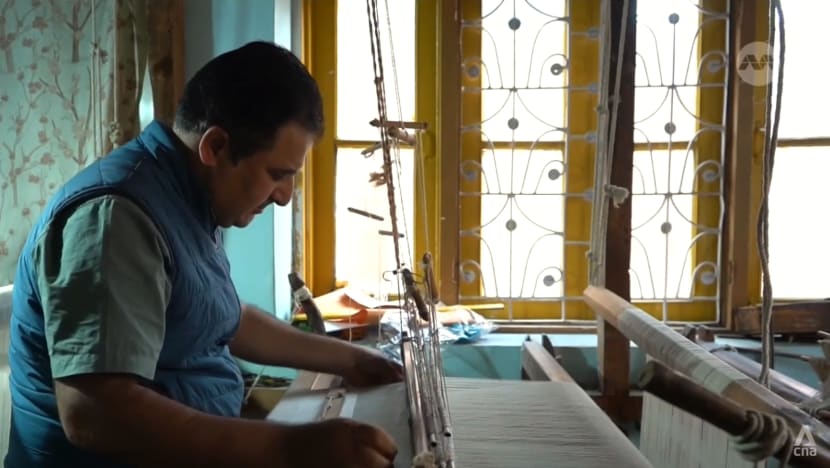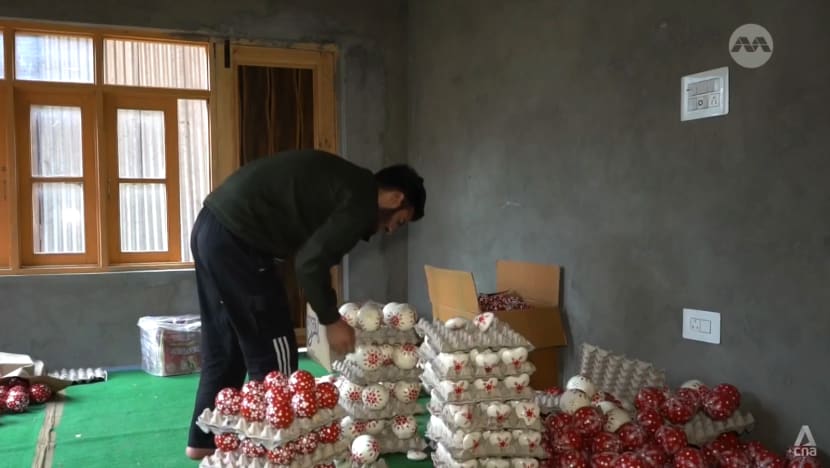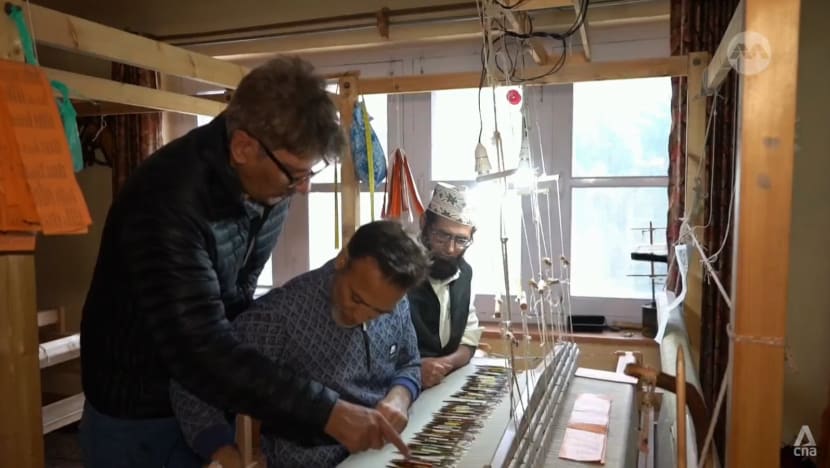Kashmir’s handicrafts industry faces uncertain future amid US tariffs
Artisans say the 26 per cent tariffs on Indian imports will impose a financial burden on them and make their products more expensive.

Pashmina weaver Majid Ahmad Mir works at House of Mir, in Indian-administered Kashmir.

This audio is generated by an AI tool.
KASHMIR: Pashmina weaver Majid Ahmad Mir is part of a Kashmiri family that has practised a centuries-old craft for generations.
Handcrafted products, including pashminas, are set to become more expensive after United States President Donald Trump recently imposed 26 per cent tariffs on Indian imports.
Mir told CNA that if these taxes are applied, artisans will suffer financially.
According to estimates by the Kashmir Chamber of Commerce and Industry (JKCC&I), handicrafts bring in over US$465 million annually for the Indian-administered region.
One-fourth of that revenue comes from global markets, including 20 per cent from the US.
“We haven't yet figured out how to deal with this situation,” said Mir, who hails from the Natipora area of Kashmir’s Srinagar city.
“Many may be forced to leave this work and move to other professions, which could lead to the decline and possibly the disappearance of Kashmir’s handicrafts,” said the House of Mir pashmina artisan.
Ubaid Ali, who handles papier-mache items and holiday decorations, is already feeling the fallout.
His overseas buyers, who locked in orders months ago, began demanding heavy discounts from his company Ubaid Handicrafts after the tariffs were announced.

The papier-mache exporter fears financial losses with goods already produced and partially paid for.
“We hope Indian trade bodies and the government will talk to US authorities to relax the tariffs on handicraft items. If that’s not possible, we would like the government to support us with subsidies to help cover our losses,” said Ali.
On a more positive note, the White House has paused the tariffs for 90 days for most countries except China, though a “baseline” 10 per cent duty rate remains.
This has offered some temporary relief for local tradespeople, allowing them to adjust and explore new intra-regional trade routes.
Wajahat Qazi, founder and director of local clothing manufacturer Zaevyul, said he sees a silver lining and an opportunity.
“It might lead to intra-regional trade that is more in volume and more abundant, so it is not necessarily all gloom and doom,” said Qazi.

India is pushing the US for a trade deal, looking for a two-way trade arrangement worth US$500 billion by 2030.
JKCC&I president Javid Ahmed Tenga is hopeful for the outcome.
“We have high expectations from our honorable prime minister, as the entire business community is looking towards him and we are hopeful that he will find a way to take us out of the crisis,” he said.














